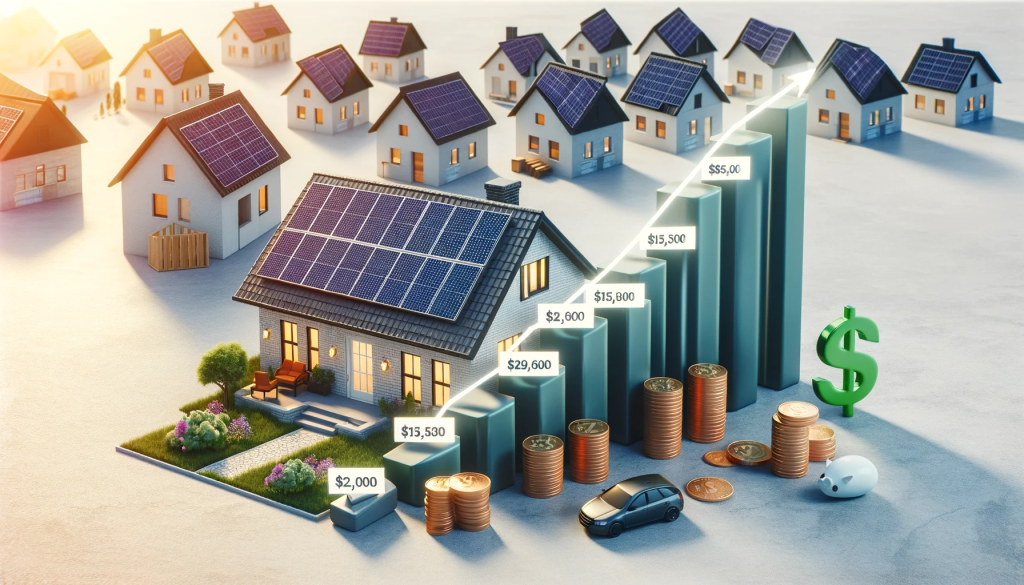Introduction
In recent years, solar energy has seen a dramatic rise in popularity as a renewable energy source for residential use. This shift is driven by growing environmental concerns, such as climate change and the need for sustainable energy solutions, as well as economic factors like increasing energy costs. Solar energy is emerging as a key player in transforming how we power our homes, offering a cleaner, more sustainable, and often more economical alternative to traditional energy sources.
Understanding Solar Energy
Solar energy harnesses the power of the sun to generate electricity. Here’s how it works:
- Solar Panels: These are the most visible component of a solar energy system. Panels absorb sunlight and convert it into electricity through photovoltaic cells.
- Types of Systems: Residential solar energy systems can vary. The most common are grid-tied systems, which are connected to the existing power grid, allowing homeowners to use solar when available and grid power when needed. Off-grid systems are entirely independent, often coupled with battery storage for uninterrupted power supply.
Environmental Benefits
The adoption of solar energy significantly impacts the environment:
- Reduction in Carbon Footprint: Solar power is a clean, renewable resource. Unlike fossil fuels, it doesn’t emit greenhouse gases or other pollutants. By using solar energy, homeowners contribute to a reduction in carbon emissions, a critical step in combating climate change.
- Sustainable Energy Source: Solar energy is sustainable and abundant. Harnessing the sun’s power doesn’t deplete it, making it a long-term solution for energy needs.

Economic Advantages
Switching to solar energy offers several financial benefits:
- Savings on Energy Bills: After the initial setup, solar power can lead to substantial savings on electricity bills. In many cases, solar panels generate more electricity than a home needs, allowing homeowners to sell excess power back to the grid.
- Government Incentives: Many governments offer incentives for solar panel installation, such as tax credits, rebates, and grants, making it more affordable for homeowners.
Energy Independence
Solar energy can lead to greater energy independence for homeowners:
- Reduced Grid Reliance: With solar panels, homes can generate their own electricity, reducing dependence on traditional power grids. This is particularly beneficial during power outages or energy price hikes.
- Energy Storage: Advances in battery technology allow homeowners to store solar energy for use at night or on cloudy days, further enhancing independence from the grid.
Increased Home Value
Solar energy systems can enhance property values:
- Boost in Property Value: Homes with solar installations often have higher property values compared to those without. They are attractive to buyers who value sustainability and are conscious of long-term energy costs.
- Market Appeal: As environmental awareness grows, the demand for eco-friendly homes is on the rise. Solar panels can make properties more appealing to a segment of the market that prioritizes green living.
Technological Advancements
The field of solar energy is rapidly advancing:
- Efficiency Improvements: Ongoing research is continually improving the efficiency of solar panels, allowing them to generate more power even with less sunlight.
- Innovative Solutions: Innovations like solar shingles and transparent solar panels are making solar energy more versatile and aesthetically pleasing, broadening the appeal and application of solar technology in residential areas.

Challenges and Considerations
While beneficial, solar energy adoption comes with challenges:
- Initial Costs: The upfront cost of installing solar panels can be significant, though this is mitigated by long-term savings and potential incentives.
- Geographical Factors: Solar energy’s effectiveness can vary depending on geographic location, climate, and home orientation. Homes in areas with less sunlight may find solar less beneficial.
- Maintenance and Longevity: While solar panels require minimal maintenance, they do have a lifespan, typically around 25-30 years. Homeowners should consider this when evaluating the cost and benefits.
Conclusion
The shift to solar energy is a key part of the movement towards sustainable living. By adopting solar power, homeowners can enjoy environmental benefits, economic savings, and increased energy independence, all while contributing to a greener future. Despite some challenges, the long-term advantages of solar energy are clear, making it a smart and responsible choice for powering our homes. As technology continues to evolve, solar energy becomes more accessible and efficient, paving the way for a more sustainable world.












































